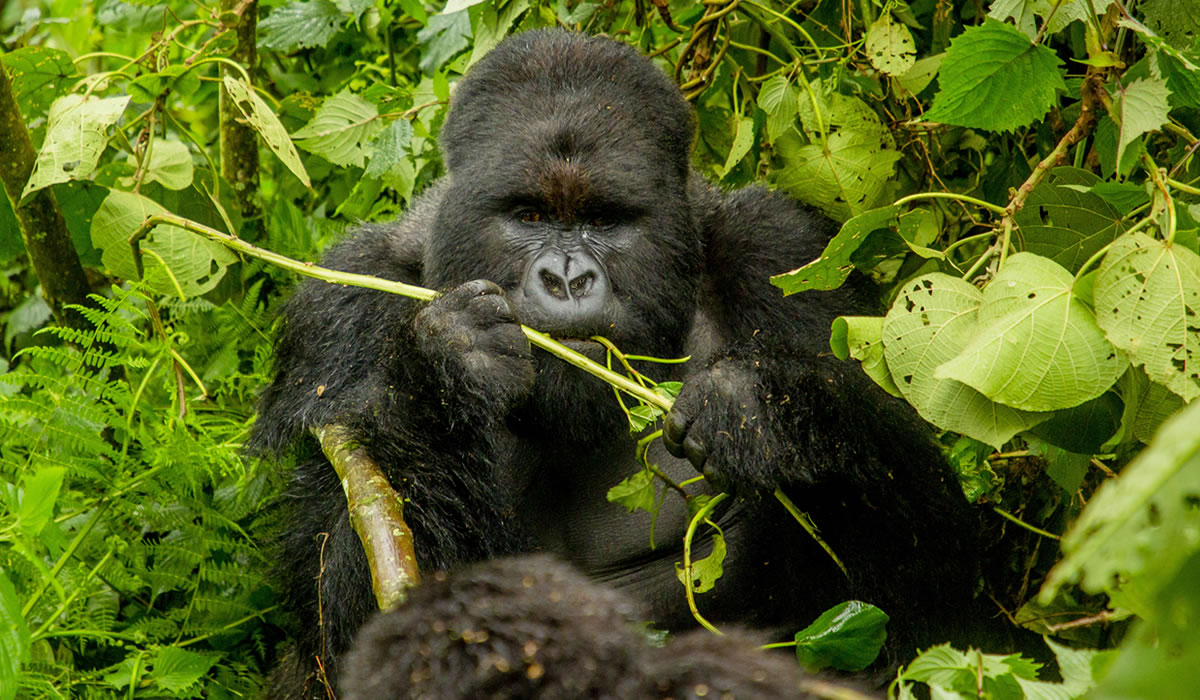Volcanoes National Park is one of Rwanda’s most iconic destinations and a jewel of conservation in Africa. Nestled in the far northwestern part of the country, this park is famed as the sanctuary of the endangered mountain gorillas and a centerpiece of Rwanda’s ecotourism. Its dramatic landscapes, rich biodiversity, and extraordinary wildlife experiences make it a must-visit attraction for travelers exploring the land of a thousand hills. Volcanoes National Park is more than a safari destination, it is a place where adventure, conservation, and culture converge to create an unforgettable experience.

The park covers about 160 square kilometers and is part of the wider Virunga Conservation Area, which stretches across Rwanda, Uganda, and the Democratic Republic of Congo. The park’s terrain is dominated by a chain of dormant volcanoes that form part of the Virunga Mountains. Among them are Karisimbi, Bisoke, Muhabura, Gahinga, and Sabyinyo, each offering dramatic backdrops for visitors. These lush mountains are covered in bamboo forests, montane vegetation, and alpine meadows, creating diverse habitats that support an impressive range of flora and fauna. The high-altitude ecosystem, combined with the striking volcanic landscapes, makes Volcanoes National Park one of the most scenic destinations in East Africa.
The highlight of any visit to Volcanoes National Park is gorilla trekking. Rwanda is home to about a third of the world’s remaining mountain gorillas, and the park provides a rare opportunity to encounter these gentle giants in their natural habitat. Trekking begins early in the morning after a briefing at the park headquarters in Kinigi, where visitors are assigned to small groups and paired with experienced guides. The treks can last from one to six hours depending on the location of the gorilla family, and once the group is located, visitors are allowed to spend one precious hour observing and photographing them. The experience of coming face to face with a silverback or watching a playful baby gorilla is often described as life-changing, and it remains one of the most sought-after wildlife encounters in the world.
Beyond the gorillas, Volcanoes National Park is also home to golden monkeys, another rare primate species found in the bamboo forests at the park’s lower elevations. Golden monkey trekking is a rewarding activity that offers a lighter and often more playful alternative to gorilla trekking. The monkeys are colorful, with golden-orange fur, and live in large groups that are easier to track. Observing them leaping through the bamboo trees, feeding, and interacting provides an entertaining and memorable experience for visitors.
Hiking is another popular activity in Volcanoes National Park. The most challenging and rewarding trek is to the summit of Mount Karisimbi, Rwanda’s highest peak at 4,507 meters. This two-day hike takes adventurers through different vegetation zones, from dense forests to alpine meadows, with overnight camping on the mountain. The summit offers breathtaking views across the Virunga range and into neighboring countries. Another popular hike is Mount Bisoke, which can be completed in a single day. Its crater lake at the summit is one of the most beautiful sights in the region and a highlight for hikers. For those seeking shorter treks, hikes to the Dian Fossey tomb and research site provide an opportunity to learn about the famous primatologist whose work with gorillas brought global attention to their conservation.
Volcanoes National Park is not just about wildlife and hiking, it also offers rich cultural experiences. The Iby’iwacu Cultural Village, located near the park, provides visitors with insights into traditional Rwandan life. Here, travelers can interact with local communities, watch cultural performances, and learn about traditional medicine, hunting techniques, and crafts. These cultural experiences add depth to a visit by connecting travelers with Rwanda’s heritage and showing how conservation and community development go hand in hand.
Bird watching is another rewarding aspect of a visit to Volcanoes National Park. The park hosts over 200 bird species, including several Albertine Rift endemics. Birders can look out for species like the Rwenzori turaco, handsome francolin, and strange weaver. The combination of montane and bamboo habitats creates excellent opportunities for spotting unique species while exploring the park’s trails.
Conservation is at the heart of Volcanoes National Park, and tourism plays a key role in funding these efforts. Gorilla trekking permits are priced at a premium, but a significant portion of the revenue goes directly into conservation projects and supporting local communities. Rwanda has become a model of how ecotourism can protect endangered species while providing tangible benefits for people living near the park. Visitors contribute to this success story simply by taking part in gorilla trekking or other park activities.
The park’s accessibility makes it an attractive destination. Volcanoes National Park is located about two and a half hours from Kigali, Rwanda’s capital, making it possible for travelers to visit even on a short trip. Many visitors choose to combine a gorilla trek with other attractions in Rwanda, such as a cultural tour in Kigali, chimpanzee trekking in Nyungwe Forest National Park, or a safari in Akagera National Park. The country’s compact size and well-maintained infrastructure make it easy to enjoy a diverse itinerary without long travel times.
Accommodation options around Volcanoes National Park cater to different budgets and preferences. Luxury lodges such as Bisate Lodge, Singita Kwitonda Lodge, and One&Only Gorilla’s Nest provide world-class service, breathtaking views, and immersive experiences. Mid-range lodges like Mountain Gorilla View Lodge and Five Volcanoes Boutique Hotel offer comfort and convenience, while budget options and guesthouses ensure that travelers with different budgets can enjoy the park. Most accommodations are located near Kinigi, where park activities begin, making early morning treks easily accessible.
Practical tips enhance the experience of visiting Volcanoes National Park. Visitors are encouraged to book gorilla trekking permits well in advance, as they are limited and in high demand. Packing essentials include sturdy hiking boots, waterproof clothing, long-sleeved shirts, and gloves to protect against stinging nettles. Walking sticks are often provided at the start of treks, and porters are available to help carry bags, which also supports local employment. Physical fitness is important, as the treks can be strenuous, but the reward of encountering gorillas in their natural habitat makes the effort worthwhile.
Volcanoes National Park is also closely tied to Rwanda’s history of scientific research. The work of Dian Fossey, who established the Karisoke Research Center in the 1960s, was instrumental in raising awareness about mountain gorilla conservation. Her legacy continues today through ongoing research and conservation initiatives in the park. Visitors who hike to her tomb can reflect on her dedication and the progress that has been made in protecting gorillas, whose populations are now slowly increasing thanks to sustained conservation efforts.
For travelers seeking a deeper connection with nature and wildlife, Volcanoes National Park delivers an unparalleled experience. It is a place where adventure meets conservation, where stunning landscapes provide the backdrop to some of the most profound wildlife encounters on earth. The park is not just about seeing gorillas, it is about understanding the delicate balance between humans and nature and appreciating the efforts that have gone into preserving this remarkable ecosystem.
In conclusion, Volcanoes National Park is the crown jewel of Rwanda’s tourism industry and a bucket-list destination for wildlife enthusiasts, conservationists, and adventure seekers. Its combination of gorilla trekking, golden monkey encounters, challenging hikes, cultural experiences, and scenic beauty creates a multifaceted experience that few places can match. The park’s accessibility, range of accommodations, and strong conservation ethos ensure that every visit is rewarding and meaningful.
For anyone planning a trip to Rwanda, Volcanoes National Park is an essential stop that promises not only breathtaking adventures but also a deeper understanding of conservation and community resilience. It is a destination that touches the heart, inspires the mind, and leaves every traveler with memories that last a lifetime.

